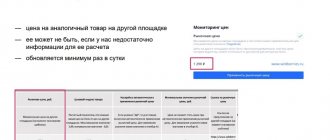Tweet
The right to refuse to testify is a constitutional right of certain categories of citizens. The right to refuse to testify is also enshrined in international law.
Article 51 of the Constitution of the Russian Federation establishes the right of citizens to refuse to testify against themselves, their close relatives, or their spouse. The circle of persons belonging to close relatives is fixed in law. The Constitution of the Russian Federation also provides for other cases when a certain category of citizens has the right to refuse to testify.
In international law, everyone has the right not to be forced to testify against themselves or to admit guilt when considering any criminal charge brought against them (International Covenant of 12/16/1966 “On Civil and Political Rights”, ratified by the Decree of the Presidium of the USSR Armed Forces of 09/18/1973 N 4812-VIII). Moreover, the citizen is given the right, based on his personal and sometimes official interests, to determine whether to give testimony, without explaining the reasons and motives for his choice.
The European Court of the Russian Federation, when ruling on one of the complaints, indicated that although Article 6 of the Convention does not contain the right to immunity, it is included in the concept of a fair trial. The European Court has indicated that the “right not to incriminate oneself” is an integral part of the “right to silence,” which in turn is the most significant element of the “right not to incriminate oneself.”
Part 1 art. 51 of the Constitution of the Russian Federation, is reflected in the immunity of witnesses enshrined in paragraph 1 of Part 4 of Art. 56 of the Code of Criminal Procedure of the Russian Federation, and paragraph 40 of Art. 5 Code of Criminal Procedure of the Russian Federation. These articles give the concept of witness immunity as the right of a person to refuse to testify against himself and his close relatives, as well as in other cases provided for by the Code of Criminal Procedure of the Russian Federation.
A similar norm is enshrined in Part 3 of Art. 25.6 of the Code of Administrative Offenses of the Russian Federation for administrative cases, part 4 of Art. 69 Code of Civil Procedure of the Russian Federation - for civil cases and in Part 6 of Art. 56 of the Arbitration Procedure Code of the Russian Federation - for arbitration cases. Thus, the legislator, based on the Constitution of the Russian Federation, provided for similar rights in criminal, administrative, civil and arbitration law.
Reason to remain silent
Under this article, a citizen has the right not to testify against himself, his spouse and close relatives, whose circle is outlined by law. Everything seems to be simple. But there are difficulties.
In what cases can a person use this article? There are no restrictions: neither by procedural status (eyewitness, witness, victim, suspect, accused), nor by the type and stage of legal proceedings, as well as regardless of any form of communication and with all officials.
The main thing is that any attempt to limit the right to remain silent, citing the fact that Article 51 can, for example, only be used by the accused, will be a violation of constitutional human rights. As well as the prohibition to use it, for example, during an oral conversation with any law enforcement officer, in any situation.
How to use the article correctly and when is it appropriate?
It happens when citizens are questioned or interrogated by law enforcement officers and are not asked about their willingness to answer questions. If a refusal is made without reference to Article 51, they may write in the protocol: “the citizen refused to answer the questions posed.” This is often used as a method of putting pressure on a person. When interrogated in a criminal case, such an answer may lead to criminal liability for refusal to testify.
But if a person answers the same question: “When answering the question posed, I will use Art. 51 of the Constitution,” then such a response is not considered a refusal. When citing a constitutional right, citizens are not subject to liability for refusing to testify.
Who are close relatives according to the law? Where are the boundaries of the concept of “not incriminating yourself” and what information falls under this? The right to remain silent extends not only to self-incrimination, but also prohibits being forced to testify against close relatives. These are spouses, parents, children, adoptive parents, adopted children, siblings, grandparents, grandchildren. That is, according to the Constitution, you can not give any information that concerns these people, be it their personal life or work.
It is important that the law also distinguishes another category - “close persons”. These include “other persons” whose life, health and well-being are dear to a person due to existing personal relationships. By the way, this category includes people in a so-called civil marriage.
What does it mean to “not incriminate yourself”? There is no clear limitation in the law. This should be decided by the citizen himself, and not dictated to him by someone else.
It is important that failure to explain Article 51 of the Constitution to a citizen may lead to the interrogation protocol being recognized as inadmissible evidence.
And one more interesting feature of this article. The Constitutional Court of the Russian Federation explained in one of its decisions that the right not to testify against oneself presupposes not only the possibility of refusing to testify, but also from providing the authorities with objects and documents, etc., that could testify against oneself.
The right to remain silent extends not only to self-incrimination, but also prohibits being forced to testify against loved ones and relatives.
Any misleading of a person about his right to use Article 51 is a violation of his constitutional rights and freedoms.
But often a person’s complete refusal to answer questions, hiding behind this article, makes it possible to conduct the investigation in a direction that is unfavorable for the citizen. And this must be remembered.
Everything about criminal cases
First, study the wording of the suspicion
— the information you provide is a story about the events as you saw them.
- in order to understand why you are suspected of this particular composition, you need to study how the investigator sets it out.
- at the moment you have the status of a suspect, therefore the source of information about the case for you is the resolution to initiate the case.
— you must receive a copy of this document, this is your right as a suspect ( clause 1, part 4, 46 of the Code of Criminal Procedure
).
- this document sets out the so-called “grounds” for initiating a criminal case; these are specific signs that allow the act to be qualified under this article.
Assess whether there is a crime
- after studying the decision to initiate a case: you need to assess what factual circumstances contradict the investigator’s conclusions about the existence of a crime. If you think you can figure it out, do it yourself, but it’s better to take this document to a professional defense lawyer for analysis.
- if it is concluded that there is no corpus delicti in your actions, then it is required that the factual circumstances (speaking of innocence) receive the status of evidence for the defense; they must be included in the materials of the criminal case. This is done not by telling the investigator and other participants in the process, but only through investigative actions: confrontations
,
questioning witnesses
.
- to do this, you then need to submit a request for investigative actions to verify these factual circumstances; it will be difficult for him to refuse the request ( Part 2 159 of the Code of Criminal Procedure
).
Refusal to admit guilt
— study the features of refusing confessions here: Admission of guilt and proof
, its role in the evidence base.
Soft change in readings
- despite the above, it is often necessary to change the readings.
- you need to do this so that:
A)
new evidence fit into the overall picture and was integrated with other evidence.
b)
did not contradict (completely) previously given data, and did not violate the overall picture of the case; they were precisely a correction, and not a 100% turnaround.
V)
You can continue to recognize the facts (which are pointless to deny), but deny their interpretation (intention, motive, purpose).
You can read more here: Correction of readings
, a thoughtful change (instead of a complete turnaround).
Involvement of a lawyer makes it difficult to refuse testimony
— in your situation there is a problem, the lawyer’s signature in the protocol of the procedural action reliably “cements” it, cutting off the option of further refusal to testify.
- that is, such a protocol is evidence that can no longer be challenged on the grounds of inadmissibility. Such a protocol becomes completely protected from the provisions of clause 1, part 2 of 75 Code of Criminal Procedure
.
- it is extremely difficult to refuse testimony given with the participation of a lawyer (such a refusal will be assessed critically by the court).
— in your situation, the lawyer may have violated the requirement of paragraph 6
Standard, he was obliged to explain the consequences of admitting guilt, but there is no practical point in complaining about the lawyer; it will not bring you any benefit.
Night time
- the fact that the interrogation took place at night
, provides a clue for refusing to testify.
- night actions should be carried out only in urgent cases (requirement of Part 3 164 of the Code of Criminal Procedure
).
- this does not mean that the interrogation record can actually be recognized as inadmissible evidence. In practice, the prosecution cannot justify the need for night actions with real circumstances, but is limited to general phrases, but the court is always content with them (and sides with the prosecution).
- that is, one should not overestimate this clue, but still - this somewhat reduces the evidentiary power of this interrogation and makes it easier to refuse testimony.
How to proceed
— It is within my power to clarify general points and give approximate advice (not linked to the specifics of your case that are unknown to me).
- how exactly to refuse testimony - what to refer to, whether it is worth justifying the refusal specifically due to the nighttime nature of the interrogation, all this cannot be explained in the response format on the website.
- at the moment, any sharp, hasty actions do not make sense, they are meaningless. The situation develops regardless of you.
- the next moment when the situation allows partial control over it (that is, the possibility of some significant actions will arise) is the moment of bringing charges ( Part 2 172 of the Code of Criminal Procedure
).
Immediately after the accusation is brought, you must be interrogated ( Part 1 173 of the Code of Criminal Procedure
).
- this moment is key to changing the testimony. You should already be prepared for it (think about how to argue the reason why you gave the old testimony). You must also have written requests to the investigator to carry out investigative actions ( Part 2 159 of the Code of Criminal Procedure
).
In what cases can you refuse previously given testimony?
Strictly speaking, formally, there is no such thing as “refusal of previously given testimony.” Testimony has already been given and recorded in the interrogation protocol. In the context of the topic raised, “refusal of testimony” should be understood as a statement made by a witness or accused that the testimony previously given by him is invalid for one reason or another.
However, this is all theory. In practice, it is extremely difficult to “cancel” one’s own testimony
Even if the testimony during the investigation was given under pressure, it will not be possible to simply refuse it in court. Unfounded statements about pressure exerted by operatives or investigators will not be taken into account. As practice shows, if there is no objective evidence of undue influence, then refusing one’s own testimony in court will have no consequences.
In this regard, practicing lawyers advise “making waves” about illegal pressure during the investigation, without waiting for the case to go to court and be sure to apply for new testimony.
The subjective side of the crime
If the subject of the crime is a witness, then the subjective side is his direct intent and desire to hide the circumstances of the case through refusal to testify. However, motives as such in this case are not taken into account by either the court or the investigator. The only thing that is required is that the witness understand the importance of the information that he is concealing from the investigation.
Since the trial requires consideration of the situation from all angles and taking into account all testimony, the information obtained from witnesses is of great value, but if the witness refused to provide it without a good reason, then he faces criminal liability for such obstruction.
Refusal to testify: danger to society
The main danger to others if an important witness refuses to testify is the loss of protection for the interests of all parties to the case, as well as the risk to the parties to the case testifying against the criminal.
The second most important danger is that refusal to testify can make it difficult or impossible for the court to find the truth, restore justice and punish the real perpetrators of a criminal offense. And also, due to the absence of some facts, the court may lose objectivity.
Arbitrage practice
Contrary to popular belief, retracting your previously given testimony is not an easy task.
A change in testimony by a witness or victim in court and a statement that the testimony that he previously gave to the investigator does not correspond to reality will, with a 100% probability, result in the disclosure, at the request of the prosecutor, of the interrogation protocol from the case materials. After this, the witness will be asked why his testimony in court differs from those recorded in the protocol. And as practice shows, arguments such as “the investigator misunderstood me,” “the investigator wrote down the testimony incorrectly,” “I didn’t read what I signed,” etc. are not accepted in Russian courts.
Often such situations end with the witness then being prosecuted for perjury in court.
Still have questions about the topic of the article? Ask them through the online consultant form right now!
Reasons for refusing to testify
The most popular reasons for refusal are:
- Reluctance of the witness to assist or otherwise assist law enforcement officials or the court;
- The desire of a witness to help a guilty person avoid punishment for a crime or shift the blame to another person;
- Fear for the life, well-being and health of oneself or one’s loved ones due to possible revenge of the person against whom the action should be taken;
- The desire of the witness to avoid procedural and judicial disputes, as well as other participation in the work of law enforcement agencies;
- Other motives.
Please note that Russian legislation is constantly changing and the information we write may become outdated. In order to resolve the issue you have regarding Criminal Law, we advise you to seek the advice of a lawyer in support of the site. To do this, use the form below or contact the specialist directly on the right side of the screen.
Types of punishment for refusing to testify
According to Article 308 of the Criminal Code of the Russian Federation, for refusal to testify or to provide other information necessary for the investigation and important for finding the truth, criminal punishment follows in the form of:
- A fine of 40 thousand rubles;
- Collection of a fine, totaling the income of the perpetrator for 3 months of work;
- Mandatory work – up to 460 hours;
- Arrest for up to 3 months;
- Correctional labor for up to a year.
- Types of punishment for refusing to testify
Important point
According to general rules, motives (as well as the goals of the act) do not have a decisive role in qualification. But if, in the presence of a real danger to the victim or witness in connection with their participation in the proceedings, law enforcement agencies do not take any measures to ensure safety, the forced nature of the inaction of persons can be stated.
Accordingly, in such situations, refusal to provide the required information may be considered an act committed in conditions of extreme necessity.
How to refuse previously given testimony?
In practice, the chances of “cancelling” previously given testimony may arise in the following cases:
— A witness in court discovered that the text of his testimony contained information that he did not speak about or the meaning of what was said during interrogation was significantly distorted
— The witness discovered that the signature in the interrogation protocol does not belong to him
— The accused (suspect) was interrogated during the investigation without a defense lawyer. In accordance with the Code of Criminal Procedure of the Russian Federation, testimony given without a lawyer has no legal force and cannot be used as evidence
— The testimony was given under pressure. In this case, they may be considered inadmissible evidence, however, in practice, it is extremely difficult to prove the facts of pressure.




